Heute Morgen sind wir früh aufgestanden, um 7:30, damit wir rechtzeitig zum Frühstück gehen konnten. Nach dem Essen gingen wir zurück auf unsere Zimmer, räumten auf und packten unsere Sachen. Gegen 10:30 Uhr verließen wir die Jugendherberge und machten uns auf den Heimweg.
Wir liefen gemeinsam zur Bushaltestelle und warteten auf den Bus. Als dieser schließlich eintraf, erklärte die Fahrerin, dass nicht alle von uns mitfahren könnten, der Bus sei nämlich nur ein Ersatzbus und dürfe 7 Leute transportieren. So fuhr zunächst nur die Hälfte unserer Gruppe los, während die anderen noch etwa eine halbe Stunde auf den nächsten Bus warten mussten. Nachdem auch der zweite Teil unserer Gruppe unterwegs war, dauerte die Rückfahrt insgesamt ungefähr drei Stunden. Wir kamen gegen 14 Uhr im ASH an.
Danach hatten wir bis 16:30 Uhr Freizeit. Nach dem Mittagessen machten wir zusammen die Gruppenstunden, um den Isländern unsere Arbeit näher zubringen und den Kindern internationalen Austausch beizu bringen/ erleben zu lassen.
Nicht lange und ein Unwetter zog auf. Es regnete heftig, und lauter Donner hallte über den Himmel. Um die Gemüter zu beruhigen gab es zum Abendessen eine wärmende Kartoffelsuppe mit Brot, die bei diesem Wetter genau das Richtige war.
Im Rahmen des Workshops an der ASH, an dem unsere Delegation teilgenommen hat, stand das Thema „Erziehung nach Auschwitz“ im Mittelpunkt. Gemeinsam setzten wir uns intensiv damit auseinander, wie Bildung und Erziehung heute dazu beitragen können, dass sich die Gräueltaten des Nationalsozialismus niemals wiederholen. Besonders hervorgehoben wurde die Notwendigkeit, die Erinnerung an die Verbrechen von Auschwitz sowie die kritische Aufarbeitung der Vergangenheit dauerhaft in Pädagogik und Sozialer Arbeit zu verankern.
Unsere Delegation beschäftigte sich eingehend mit den Plänen und der Umsetzung der Nationalsozialisten in Auschwitz. Anhand von Dokumenten und Zeitzeugenberichten wurde deutlich, wie das Lager zum zentralen Ort des industriellen Massenmords wurde. Insbesondere Juden, aber auch Roma, Sinti und andere Gruppen wurden dort systematisch entrechtet, verfolgt und ermordet. Die industrielle Organisation des Mordens – etwa durch Gaskammern und die gezielte Vernichtung ganzer Familien – wurde dabei besonders deutlich.
Ein besonderer Schwerpunkt des Workshops lag auf der Auseinandersetzung mit der zynischen Inschrift „Arbeit macht frei“ am Lagertor von Auschwitz. Wir arbeiteten mit Zitaten ehemaliger Häftlinge und versuchten, mithilfe von Karten die verschiedenen Teilbereiche der drei Lager von Auschwitz zu lokalisieren und nachzuvollziehen.
Der Workshop war sehr eindrucksvoll und bewegend. Die Worte von Primo Levi leiteten unsere abschließende Reflexion: „Es ist geschehen, folglich kann es wieder geschehen.“ Sie verdeutlichen unseren Auftrag: Unser Engagement muss darauf abzielen, dass solche Verbrechen nie wieder geschehen.
Ronja, Anita, Emil
his morning we got up early, at 7:30, so that we could make it to breakfast on time. After eating, we went back to our rooms, tidied up, and packed our things. Around 10:30 we left the youth hostel and started our journey home.
We walked together to the bus stop and waited for the bus. When it finally arrived, the driver explained that not all of us could get on, because it was only a replacement bus and could only carry 7 people. So at first, only half of our group left, while the rest of us had to wait another half hour for the next bus. Once the second part of our group was on the road as well, the trip back took about three hours in total. We arrived at the ASH at around 2 p.m.
Afterwards we had free time until 5:30 p.m. Some of us took the opportunity to take the U7 subway to the Gropiuspassagen shopping center. There we strolled through the stores, split up into smaller groups, and tried different kinds of food — some had sandwiches at Subway, others got a burrito from the Mexican place, some ordered kebabs, and of course many of us couldn’t resist getting some ice cream as well. After eating we browsed the shops a little longer before taking the U7 back to the ASH in time to join the group activities.
Before long, a thunderstorm rolled in. It rained heavily and thunder rumbled across the sky. To lift our spirits, dinner was a warm potato soup with bread — just the right thing in that weather.
As part of the workshop at ASH, which our delegation attended, the central topic was “Education after Auschwitz.” Together, we engaged deeply with the question of how education and pedagogy today can help ensure that the atrocities of National Socialism are never repeated. The workshop particularly emphasized the necessity of anchoring remembrance of the crimes of Auschwitz and the critical examination of the past as a permanent task in education and social work.
Our delegation closely examined the Nazis’ plans and the implementation of those plans in Auschwitz. Through documents and survivor testimony, it became clear how the camp became the central site of industrial mass murder. Jews, as well as Roma, Sinti, and other groups, were systematically disenfranchised, persecuted, and murdered there. The industrialized organization of mass murder—such as through gas chambers and the targeted extermination of entire families—was made especially clear to us.
A particular focus of the workshop was the discussion of the cynical inscription “Arbeit macht frei” (“Work sets you free”) above the gate of Auschwitz. We worked with quotations from former prisoners and tried, with the help of maps, to locate and reconstruct the different sections of the three Auschwitz camps.
The workshop was extremely impactful and moving. Our concluding reflection was guided by the words of Primo Levi: “It happened, therefore it can happen again.” These words illustrate our ongoing responsibility: Our commitment must be to ensure that such crimes never happen again.
Ronja, Anita, Emil
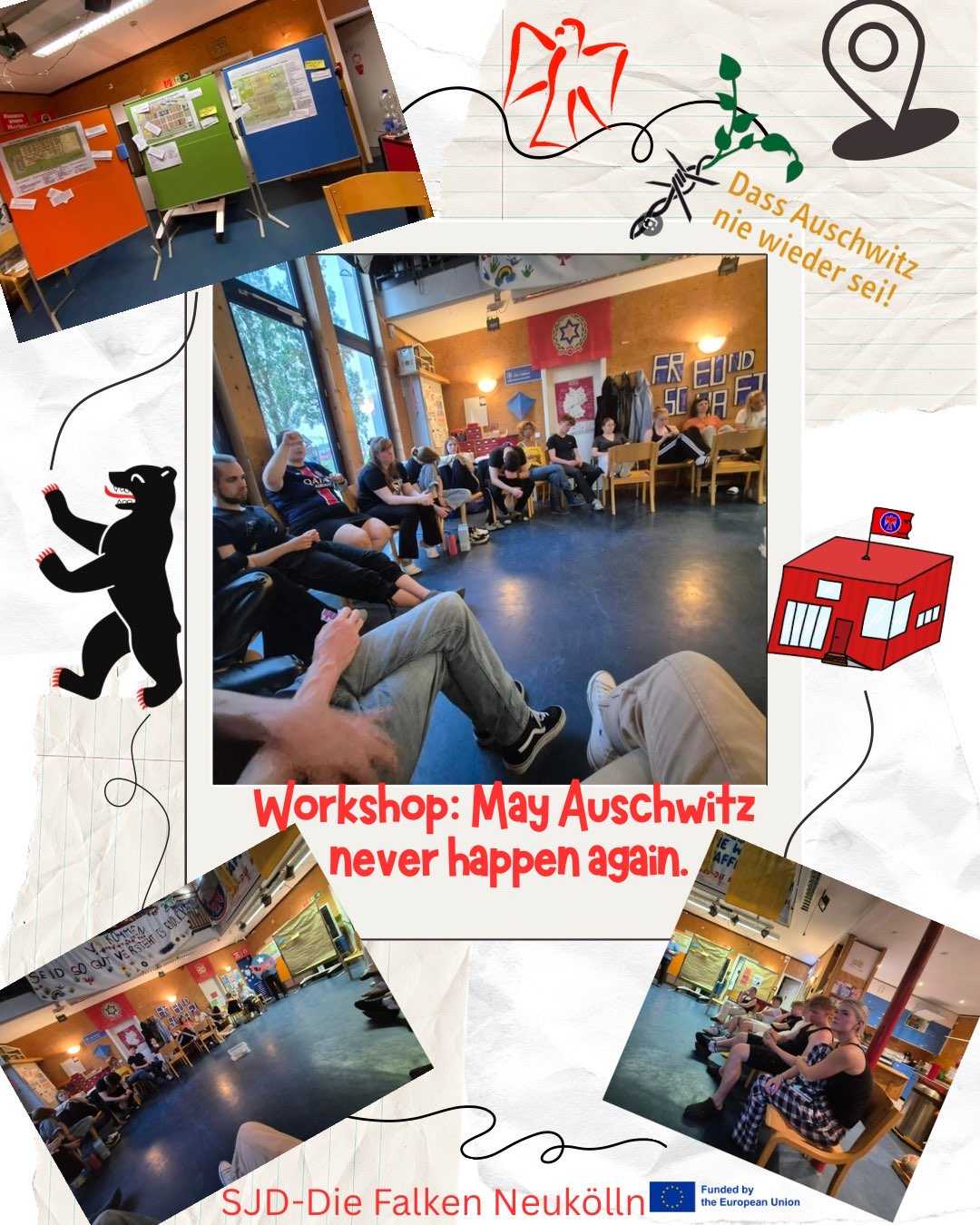

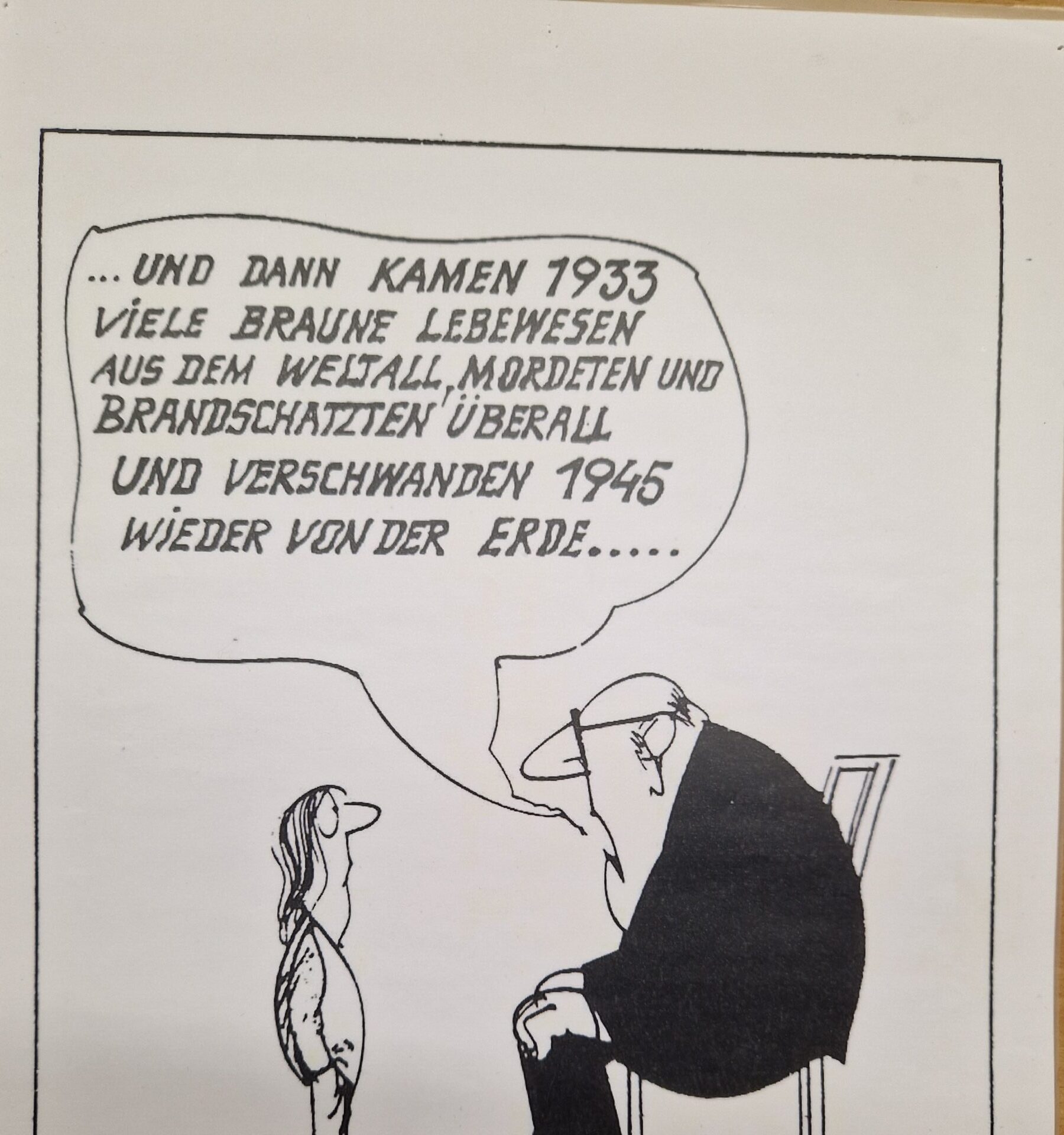
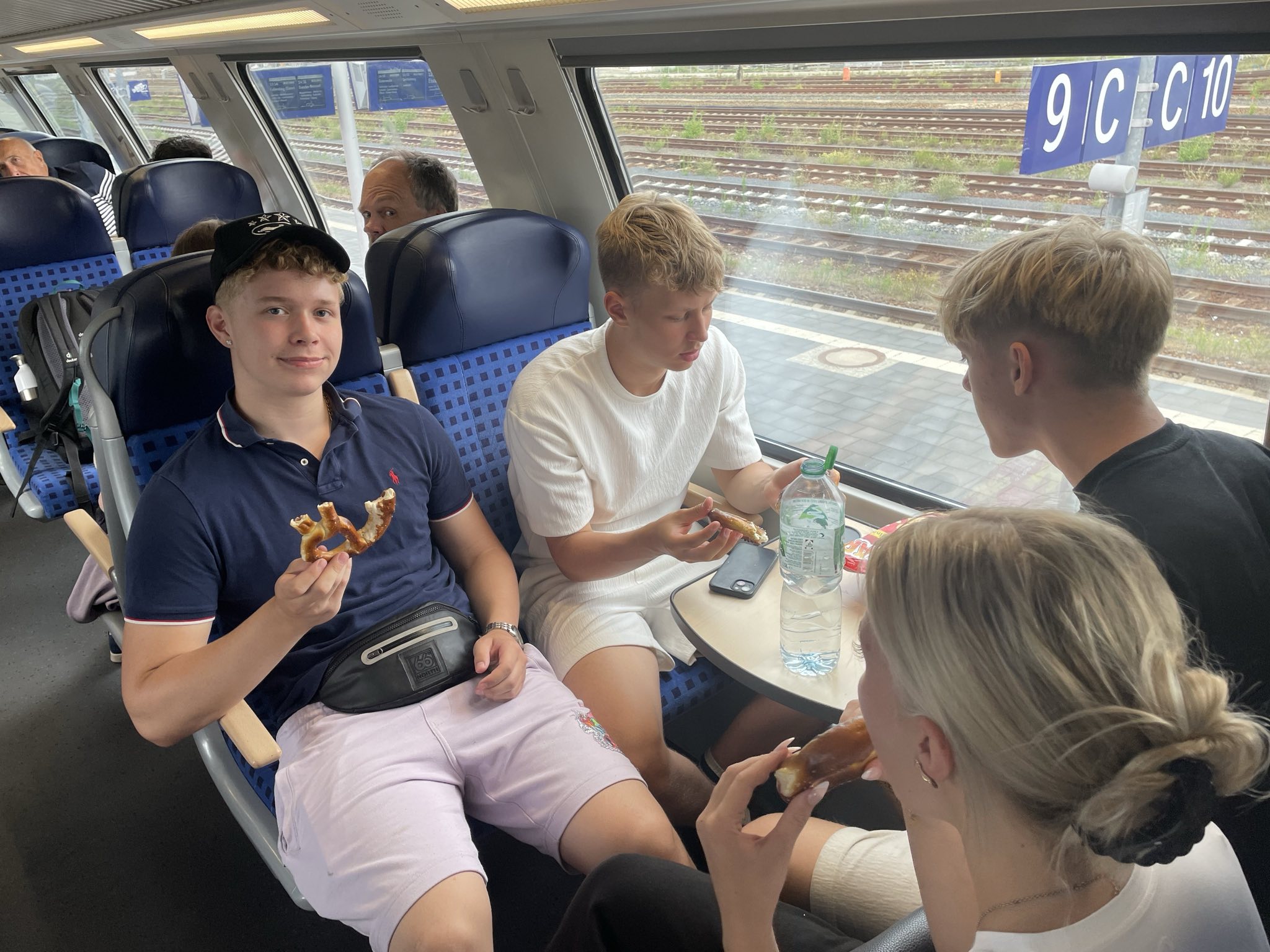
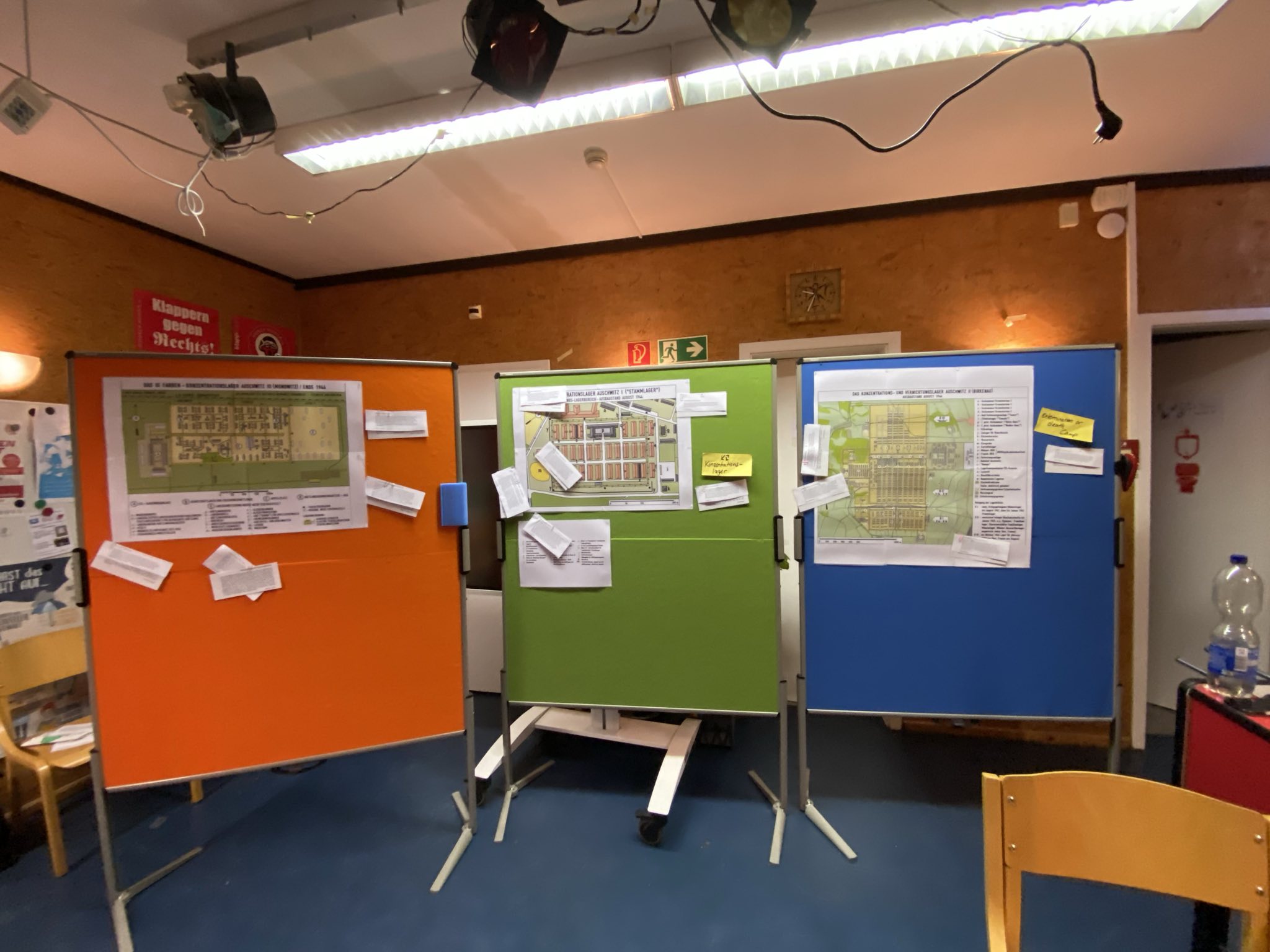
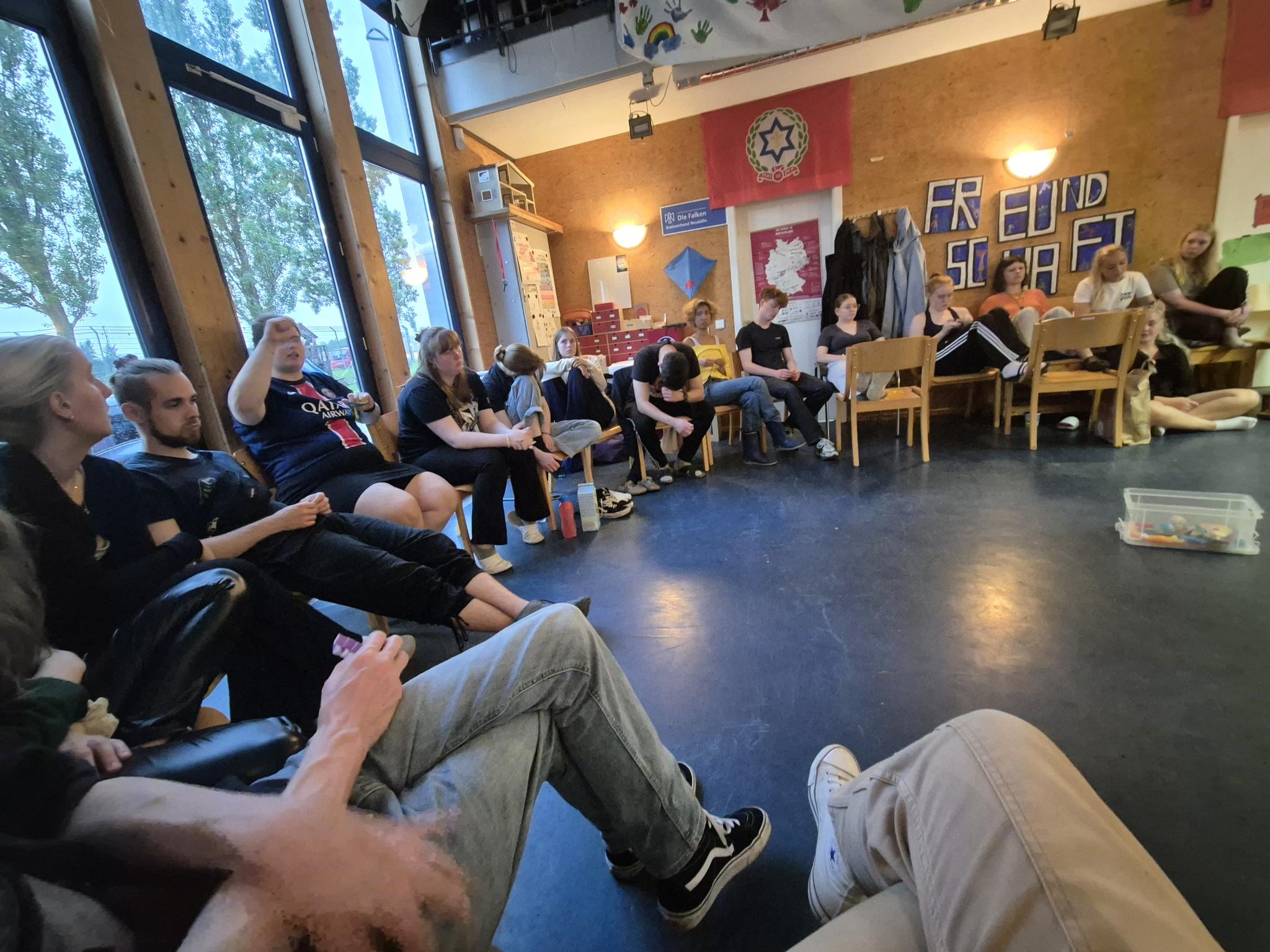
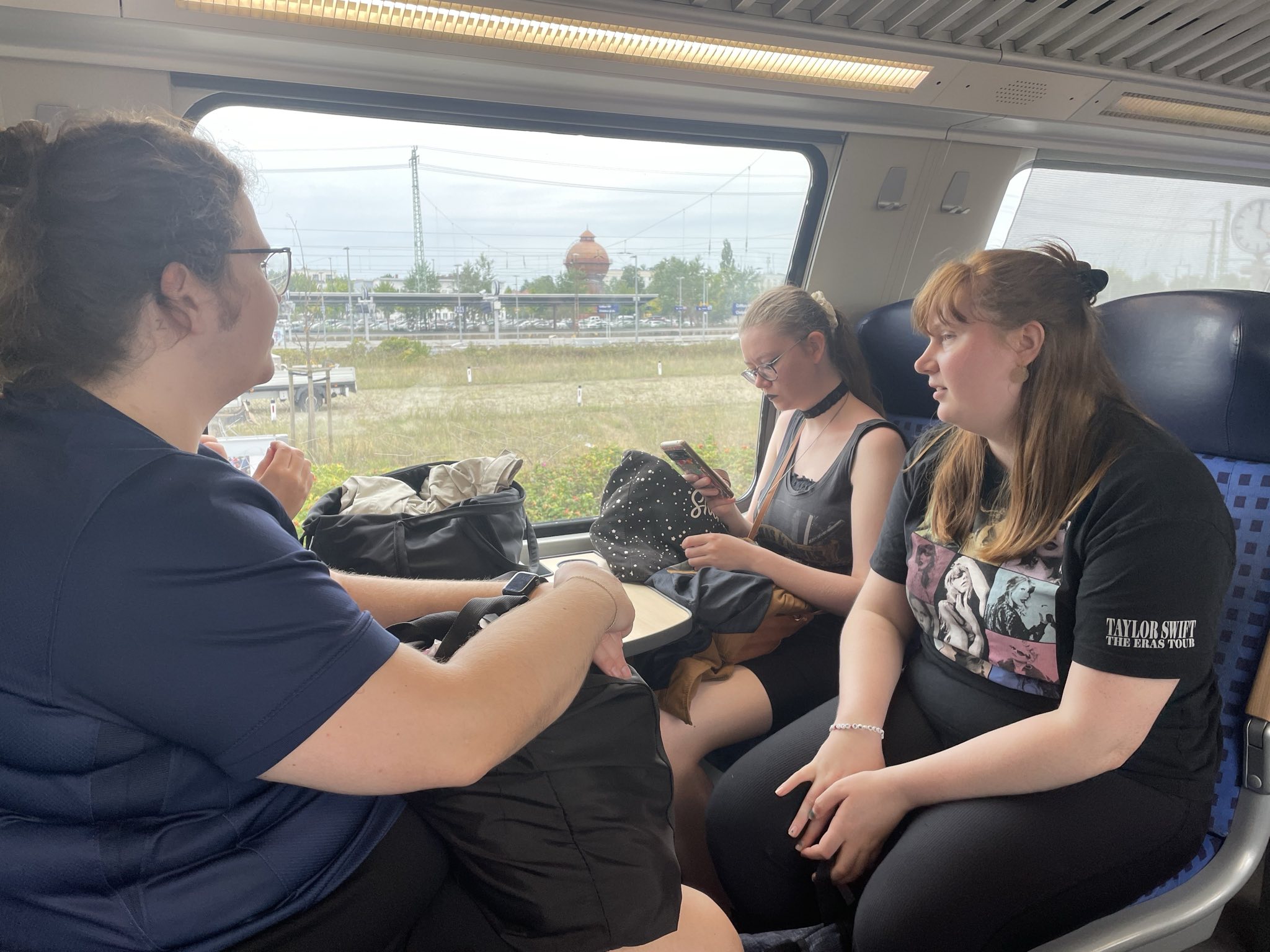
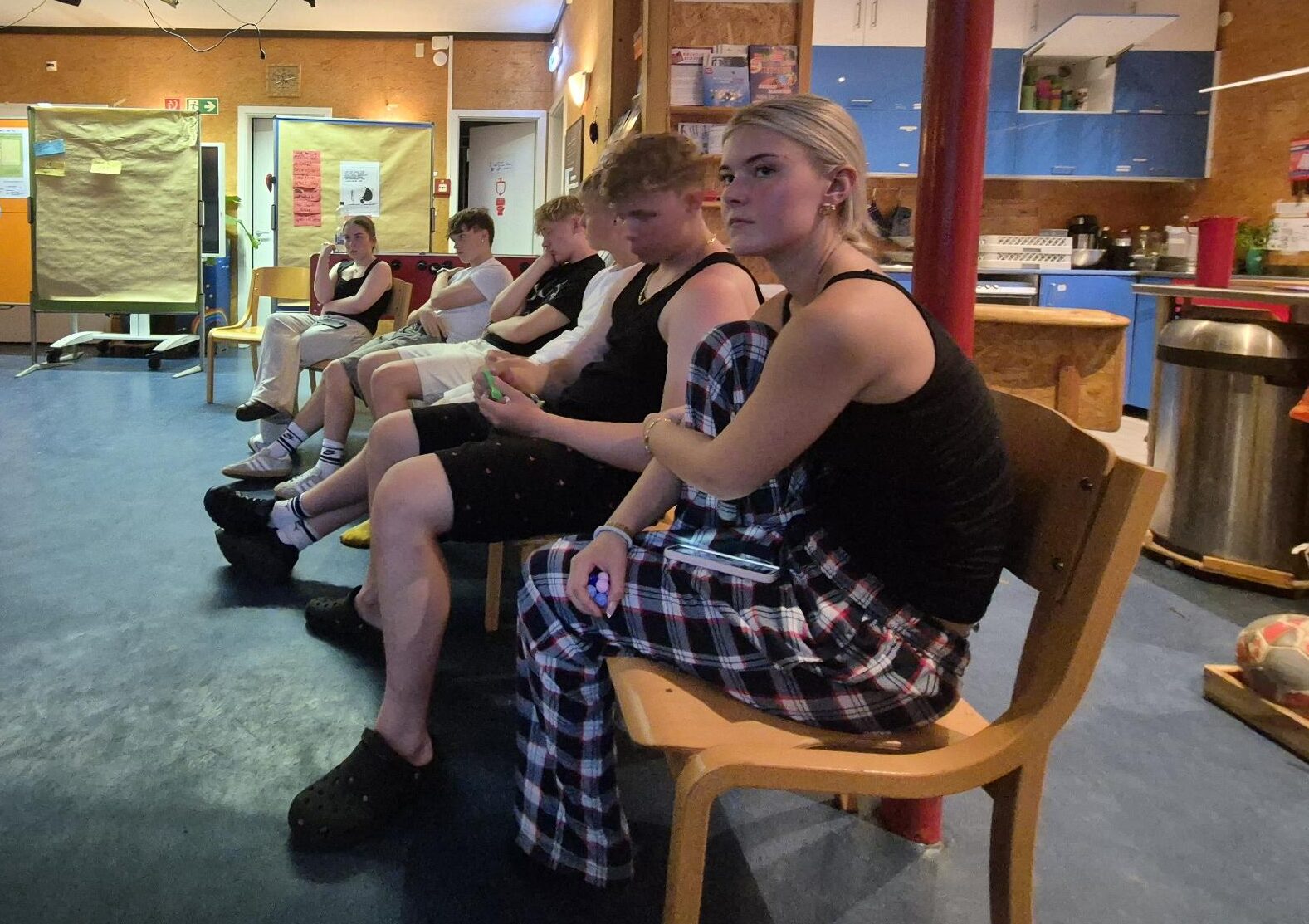
Du kannst der/die Erste sein